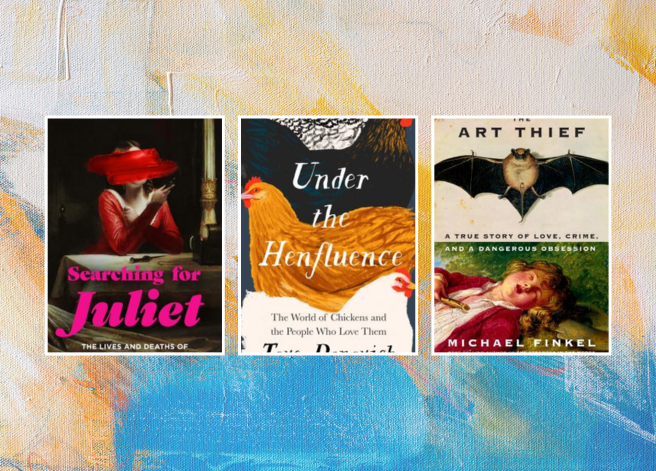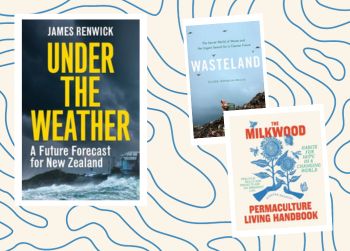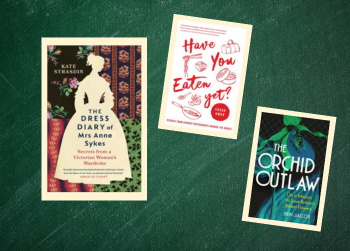Feijoa season is upon us! This abundant little fruit is everywhere in autumn – falling off trees and filling up bags and containers, ready to share. But how exactly did a South American fruit nestle itself so neatly into the hearts of people all across Aotearoa? Kate Evans asks that question and more in her book Feijoa: A Story of Obsession & Belonging.
Explorations of culture and history through the lens of one specific type of food are not unusual: there have been books written about milk, salt, sugar, bread, olive oil, the general concept of breakfast, and even two on cod – and that’s only scraping the surface. Whether you love them or hate them, it’s about time feijoas made the list, because this back-garden fruit has a global story, and a fascinating one at that. Click below to place a reserve, and browse the rest of our non-fiction picks for the month.
 Feijoa : a story of obsession & belonging / Evans, Kate
Feijoa : a story of obsession & belonging / Evans, Kate
“The feijoa comes from the highlands of Southern Brazil and the valleys of Uruguay, where it was woven into indigenous and Afro-Brazilian cultures. Today, it is celebrated by one small town in the Colombian Andes, and has become an icon of community and nationhood in New Zealand. Feijoas are among only a handful of plants that have made the journey from the wild to the orchard in the last few generations, providing a rare opportunity to watch, up close, the myriad ways plants seduce us. Feijoa is a book about connection: between people and plants, between individuals, between cultures, across disciplines, celebrating the ways our lives and loves intersect in surprising ways.” (Adapted from Catalogue)
 Material world : the six raw materials that shape modern civilization / Conway, Ed
Material world : the six raw materials that shape modern civilization / Conway, Ed
“Sand, iron, salt, oil, copper and lithium: the struggle for these fundamental materials has created empires, razed civilizations, and fed our ingenuity and our greed for thousands of years. Though we are told we now live in a weightless world of information, we dug more stuff out of the earth in 2017 than in all of human history before 1950. And it’s getting exponentially worse. Even as we pare back our consumption of fossil fuels we continue to redouble our consumption of everything else. Why? Because these ingredients are the basis for everything. Our modern world would not exist without them, and the hidden battle to control them will shape our future. This is a story of our past and future, from the ground up.” (Adapted from Catalogue)
 A day in the life of Abed Salama : a Palestine story / Thrall, Nathan
A day in the life of Abed Salama : a Palestine story / Thrall, Nathan
“Milad is five years old and excited for his school trip to a theme park on the outskirts of Jerusalem, but tragedy awaits – his bus is involved in a horrific accident. His father, Abed, rushes to the chaotic site, only to find Milad has already been taken away. Abed sets off on a journey to learn Milad’s fate, navigating a maze of physical, emotional, and bureaucratic obstacles he must face as a Palestinian. Interwoven with Abed’s odyssey are the stories of Jewish and Palestinian characters whose lives and pasts unexpectedly converge. A Day in the Life of Abed Salama is a deeply immersive, stunningly detailed portrait of life in Israel and Palestine, and an illumination of the reality of one of the most contested places on earth.” (Adapted from Catalogue)


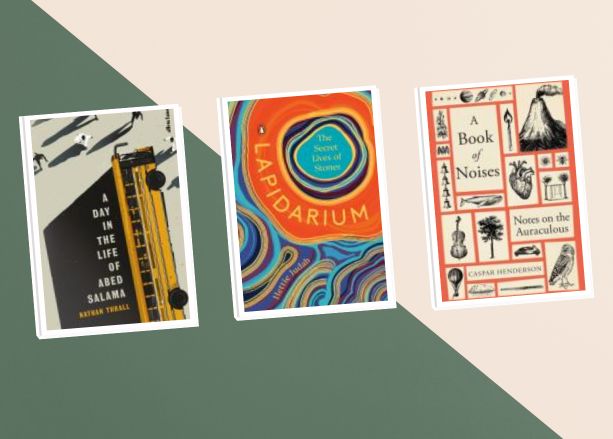
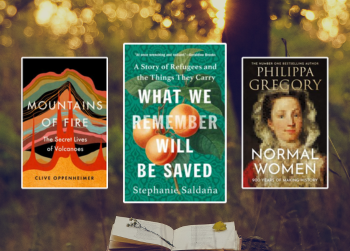

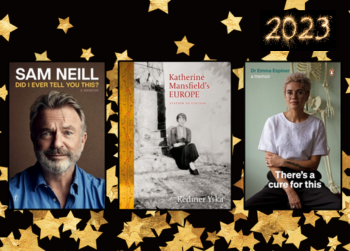
 2023 Non-fiction Highlights — Browse the full list
2023 Non-fiction Highlights — Browse the full list